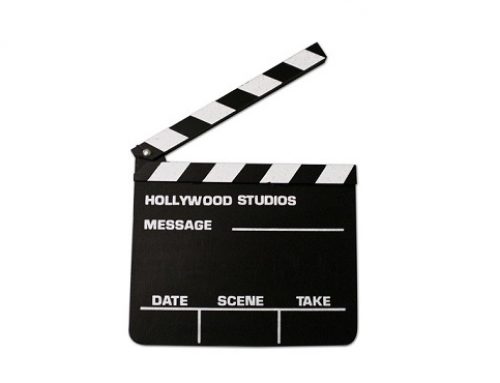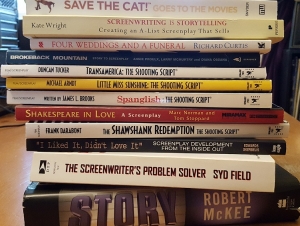 When I started out, I used to think I couldn’t call myself successful until I’d sold a screenplay or published a novel that got adapted to a film.
When I started out, I used to think I couldn’t call myself successful until I’d sold a screenplay or published a novel that got adapted to a film.
Talk about pressure!
Then I learned how very few scripts ever get sold, not to mention those that sell, but die in a studio vault somewhere. Eek!
If you think the way I used to, you’re going to be miserable. Not to sound like a cranky old person (“You kids get off my lawn!”), but to save yourself pain and heartbreak, you may want to rethink your expectations.
How will you know when you’ve “made it”?
Get over the idea of “making it”. Just keep doing your thing. Write what you’d want to see. Write with passion and honesty. (This doesn’t mean to divulge all of your family’s secrets, but honesty, in this sense, is about finding the nuggets of truth in your story, something that’s true to human nature.)
Celebrate the small successes.
Every step of your journey is an important one. Remember that. If you get a short film made, so what if it’s only seen by a hundred people? It becomes part of your portfolio. It’s now on your resume. Everything contributes to your overall success.
Quit playing the lottery.
I don’t mean the actual lottery. I mean, stop thinking of selling a screenplay like winning the lottery. If your whole life is geared toward that one goal, how will you feel about yourself if you don’t sell a screenplay? Also, you may very well sell one, but it most likely won’t be for six or seven figures. Selling your first script isn’t likely to get you that house in Beverly Hills. So try to get out of that mindset.
Take matters into your own hands.
Are you tired of your future depending on someone else giving you the green light? It’s kind of hard to avoid. If you’re tired of rejections, but know that you have a project worth making, raise the funds to make it yourself. From there, who knows what other opportunities may come your way.
Or, find opportunities related to your interests that you can do while you write. Part of what causes depression in many writers is the lack of control. You feel like no matter how hard you work, how polished your pitch, you still can’t get any traction. That’s why it’s important to find things that you CAN control to balance it out.
As with everything in life, it’s hard to NOT depend on someone giving you a break. Even a produced film needs a distributor. A manuscript needs a publisher unless you self-publish. An entrepreneur depends on customers, or the business won’t succeed. Think of every famous actor, musician, artist—each one of them needed someone to connect with their work to give them a broader audience.
For this reason, taking matters into your own hands also means expanding your network. Like it or not, you’re not an island. You need people. It doesn’t matter what you’re working on if no one can see it.
I hope these tips don’t throw cold water on your dreams. If anything, they’re meant to do the opposite. If you approach your goals with the idea of appreciating all of the small triumphs along the way, you’ll be in a much better mind space when even more opportunities come your way.
Renée Lukas is a screenwriter, an Academy Nicholl Quarterfinalist and a reader for BlueCat Screenwriting Competition. She’s also the author of four novels: The Comfortable Shoe Diaries, Hurricane Days, Southern Girl and In Her Eyes (Bella Books).



